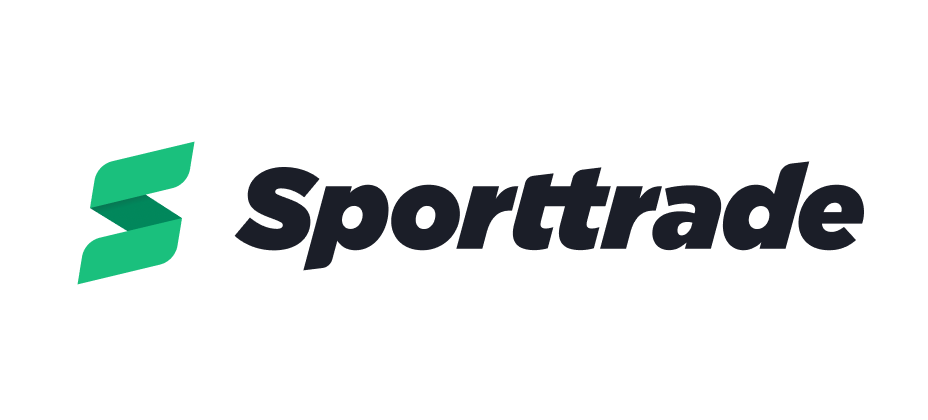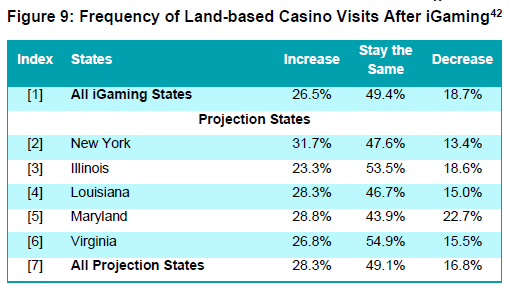If A Tree Falls In The Forest
Problem Gambling Awareness Month has been quieter than usual in 2024, which has me wondering if the RG crowd has fallen into one of the classic blunders.
The Bulletin Board
VIEWS: March is Problem Gambling Awareness Month, but the chatter has been muted this year.
NEWS: Five PGAM Announcements that can make a difference.
LOOSE ENDS: Vermont sports betting numbers; College betting “scandal” update; BetRivers boosts Delaware numbers
VIEWS: More cannibalization commentary as online casino supporters search for the silver bullet argument to convince opponents.
BEYOND the HEADLINE: A new cannibalization report from the Sports Betting Alliance favors online gambling.
AROUND the WATERCOOLER: Ohtani and regulation, NOT legalization.
STRAY THOUGHTS: Be open-minded and willing to debate.
SPONSOR’S MESSAGE - Sporttrade was borne out of the belief that the golden age of sports betting has yet to come. Combining proprietary technology, thoughtful design, and capital markets expertise, our platform endeavors to modernize sports betting for a more equitable, responsible, and accessible future.
Learn more about what makes Sporttrade an unparalleled player experience here.
The Problem Gambling Awareness Month That Wasn’t
It’s fitting that Problem Gambling Awareness Month is in March, the month that gives us the weather-related idiom, in like a lion and out like a lamb. PGAM typically follows a similar route; it comes in roaring, with oodles of meaningless pronouncements and organizations relaying their latest and greatest ideas before fizzling out.
PGAM 2024 has certainly fizzled this year, but it never had a roaring start.
Either the messaging is being drowned out, or it’s been dialed back because, if I didn’t know, I wouldn’t realize it’s PGAM. I’m not seeing the usual push.
I suspect one reason is that nothing is RG if everything is RG. What that means is the amount of attention responsible gambling and problem gambling receive has made an awareness month unnecessary. We are being hit over the head with so much RG messaging that people are likely tuning it out, especially the boilerplate stuff that typically surfaces during PGAM.
Another reason could be the sector’s realization that the messaging isn’t working. This is particularly true of old-school messaging, or, as I called it recently, 1994 solutions to 2024 problems.
“We are ramming our heads into a wall, trying to solve these issues with outdated solutions.
[…]
“There’s too much back-patting over solutions that are simply no longer effective (or never were), little more than a band-aid that conceals a much bigger problem, or that are, in some instances, counterproductive.”
Five RG-PG Initiatives I Can Get Behind
PGAM 2024 may not be receiving much attention, but a few stories have caught my eye, two of which involve newsletter sponsors: Sporttrade and Underdog.
You may notice that these stories deal with the industry creating features or forming partnerships with providers.
Sporttrade & Birches Health: Through a partnership with Birches Health, Sporttrade customers will have access to telehealth and other information and services, which will be prominently featured on the Sporttrade app.
Further, Birches worked with Sporttrade to develop 10 tips for responsible betting.
Sporttrade CEO Alex Kane took to X to explain the process of developing the list with their customers in mind and using the right tone. “In working with Birches Health, they gave us a starting point on the 10 healthy habits,” Kane said. “From there, it was important to me to refine and put them in our voice, for our audience.”
The list is not the usual boilerplate suggestions brimming with academic terms, as seen in the following three examples:
If you choose to bet on sports, it should be something you do, not who you are. Understand that you simply cannot control the outcome of any bet.
Trying to or expecting to “win back” losses isn’t a thing. Don’t do it. Pick a unit size and stick to it!
If you’re not feeling well or you’re depressed, don’t even open a sports betting app.
BetMGM & Kindbridge: BetMGM is expanding a problem gambling pilot program it’s been offering in Colorado with Kindbridge Health. The program gives instant access to telehealth-style interventions to customers who utilize self-exclusion. It will be expanded to Massachusetts, Michigan, New Jersey, Nevada, Ohio, Pennsylvania, West Virginia, and Ontario.
FanDuel & Kindbridge: FanDuel is taking its first step with Kindbridge, announcing a trial program of its own in New Jersey and Ohio. Like its partnership with BetMGM, self-excluded players will be offered “direct access to comprehensive mental health assessments and group support services,” per FanDuel’s press release.
Underdog & idPair: In October, Underdog Fantasy announced the creation of GuardDog, an investment initiative designed to foster innovation in responsible gaming. Along with the program, Underdog seeded the project with $1 million.
The first recipient of a GuardDog grant is the company idPair.
“idPair creates a centralized repository of transactional data to analyze consumer behavior across multiple gambling platforms, contrary to the ineffective approach of attempting to assess player risk levels with limited data from a single operator.”
In simpler terms, idPair paints a complete picture of a bettor’s behaviors by looking at all of their betting accounts as a single entity.
DraftKings’ Stat Sheet: DraftKings has unveiled Stat Sheet, which it bills as “a gaming tool that gives players the ability to assess, track, and interact with their personal stats through intuitive charts and information.”
As I wrote at the time of the announcement, “All operators should offer this type of customer transparency, and I suspect it will be universally available soon.”
Loose Ends: VT Sports Betting Numbers; College Betting Update; BetRivers Boosting DE Numbers
Vermont sports betting numbers: Vermont released its first sports betting revenue report, covering the period from its January 11 launch through February. The tally for that span was a very respectable $41.2 million in betting handle. Not bad for a state with 650,000 residents.
Iowa betting plea: The Iowa and Iowa St. betting scandals (which later turned into reverse scandals) have their first casualty: Iowa men’s basketball student manager Evan Schuster. Schuster pled guilty to gambling by an underage person, which comes with a $645 fine. He is accused of using his father’s name to open a FanDuel account and placing 2,000 bets totaling over $15,800.
BetRivers in Delaware: In its first month, BetRivers tripled the online gambling revenue generated by its predecessor in Delaware, 888. Month 2, AKA February, produced similar results. Despite a shortened month (29 days), BetRivers set a new record with $3.9 million in online gambling revenue.
SPONSOR’S MESSAGE - SUBSCRIBE NOW to Zero Latency, the new podcast from Eilers & Krejcik Gaming that provides unparalleled insight into the U.S. online gambling industry through interviews with industry insiders and analysis from EKG experts.
Regulators and Lawmakers Weigh In on Cannibalization
Play USA’s Matthew Kredell went straight to the source to discuss cannibalization. Kredell asked former and current state regulators and lawmakers their thoughts on online gambling cannibalization, and to a person, they view online gambling as a positive for the market.
For the record, I’m on the pro-legalization side and feel cannibalization is way overblown.
That said, Kredell’s column falls directly into the trap Wynn CEO Craig Billings warned us of last week, as it looks at the situation at the market level and not the operator level. As Billings’ said in his viral-in-the-industry LinkedIn post, “As an operator, the TAM doesn’t pay my bills, my share of it does…”
Continually telling casino operators or labor unions that their fears are unfounded hasn’t been, isn’t, and won’t be a convincing argument, no matter who is doing the lecturing.
Further, regulators are not very likely to speak ill of or express concerns about an industry they are tasked with regulating. I don’t think the people Kredell spoke to are blowing smoke, but they also have to consider their words carefully, and I did notice a few caveats in the statements.
One in particular caught my attention. It was this comment [bold mine] by Louis Rogacki, deputy director of the New Jersey Division of Gaming Enforcement, “I think our properties have realized that if you market it properly, it can be used as a tool for customer acquisition to bring new customers that are wagering online into the properties.”
Reading between the lines, properties that make missteps, lack the resources to go all-in online, or don’t align with a top-tier partner could be at risk. And that’s the crux of the argument that pockets of the industry are making.
As I said in a recent feature column:
“The cannibalization debate isn’t as cut-and-dry as either side makes it out to be. As Stephen Stills sang, “Nobody’s right if everybody’s wrong.”
“Is there seepage from land-based gambling to online? I think it would be difficult to argue there isn’t. On the other hand, online customers also become land-based customers. It’s a door that swings both ways.
“But it’s not an industry-wide outcome. Individual casino properties will have different outcomes, and some should be concerned.”
I also agree with Chris Grove, who said on LinkedIn, “I think the problem is there’s not really any meaningful control group for this kind of analysis. I am not sure anyone can really claim “truth” in this conversation.”
And one final point I’ll make is that this is not an either-or situation. Multiple things can all be true:
Jurisdictions will greatly benefit from the introduction of online casinos.
Online gambling will cannibalize some land-based operations;
Online gambling will bring in new customers and boost revenues for some land-based operators.
Beyond the Headline: New Report from the Sports Betting Alliance
The Sports Betting Alliance, which represents the major players in the US online gambling space (DraftKings, FanDuel, BetMGM, and Fanatics), has just released its own online casino cannibalization report.
The new report, “The Potential Economic Impact of Legalizing iGaming on Casino Revenues in Five States (New York, Illinois, Louisiana, Maryland, and Virginia),” was produced by Analysis Group and clocks in at a robust 167 pages.
According to the key findings:
Land-based casino revenue growth rates increased by nearly two percentage points after the introduction of iGaming.
Total gaming revenue (online and land-based) in current iGaming states… is on average 46% higher in 2023 than it was before those states implemented iGaming.”
Maryland’s iGaming and land-based casino market would grow in the five years after passage, from a combined $2 billion in revenue a year in 2024 to $3.9 billion in 2029 (a 91% increase). Similar results were found in the four other states studied: Illinois, New York, Virginia, and Louisiana.
One terrific piece of data can be found in AG’s survey of nearly 2,400 people. Survey takers were asked, “Since you started to bet or wager on online casino games, would you say that your frequency of betting or wagering on casino games at a casino has increased, decreased, or stayed the same?”
The results were quite interesting. Visitation to land-based casinos was more likely to increase (findings were similar for the amount spent at land-based casinos).
I’ll take a closer look at the SBA’s research report next week.
Around the Watercooler
Social media conversations, rumors, and gossip.
Social media is abuzz with the downright zany illegal betting scandal involving Dodgers superstar Shohei Ohtani, his interpreter, $4.5 million, and a “streetcorner” bookie.
The story is wild enough, but to no one’s surprise, X has spun the speculation up to a billion, with unfounded claims that Ohtani is the bettor, bet on baseball, and, by implication, threw games. If you look long enough, I’m sure there’s an X rabbit hole with Bohemian Grove and Project MKUltra involved.
Now, for a social media thread that you may have missed:
West Virginia Minority Whip and NCLGS President Shawn Fluharty made a simple, straightforward case for legalizing online casinos in Maryland in a LinkedIn post. Fluharty noted that online casinos are readily available; they’re just not licensed and regulated. He included a screenshot of two offshore online casinos being marketed as legal in the US to prove his point.
Stray Thoughts
“To find yourself, think for yourself.” ~ Socrates
“It is better to debate a question without settling it than to settle a question without debating it.” ~ Joseph Joubert








